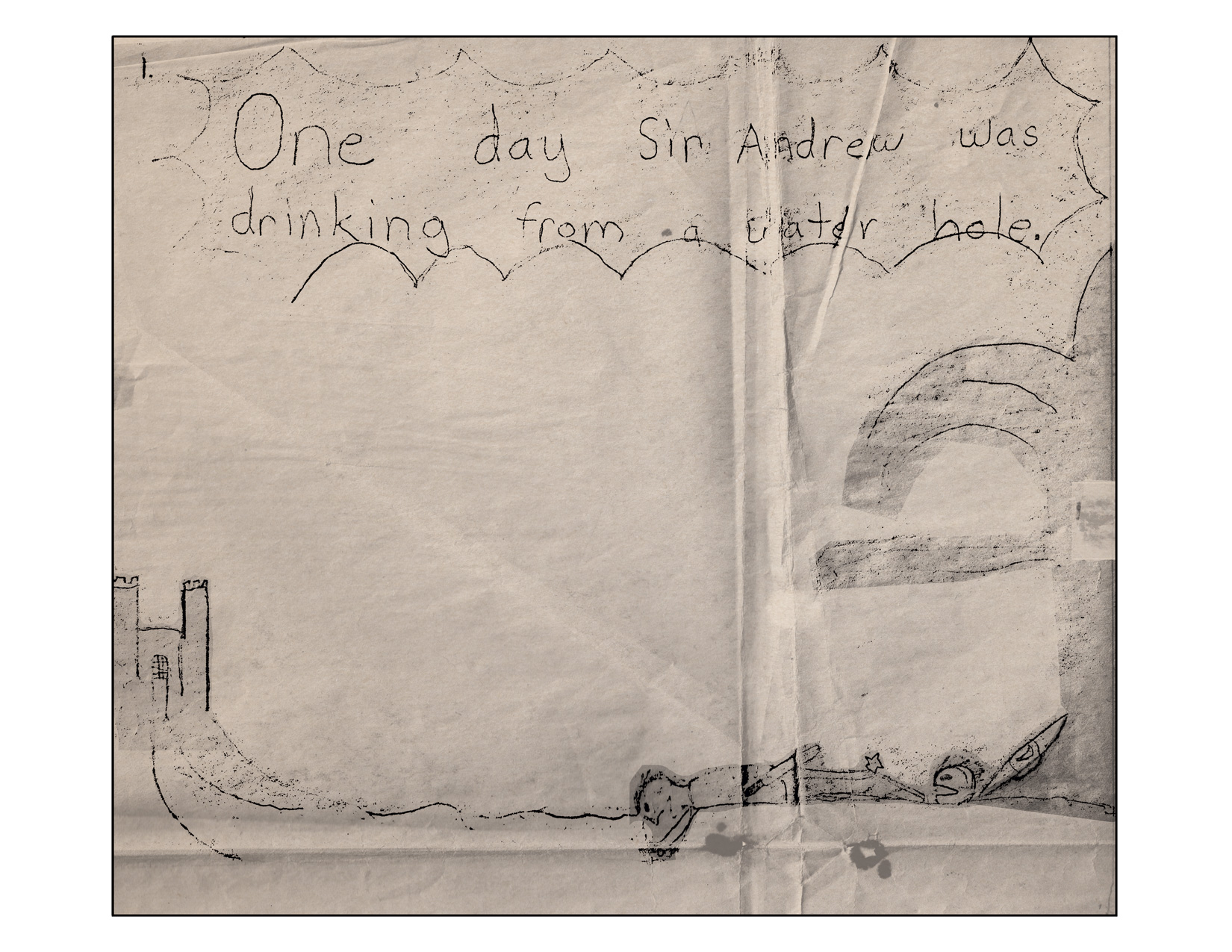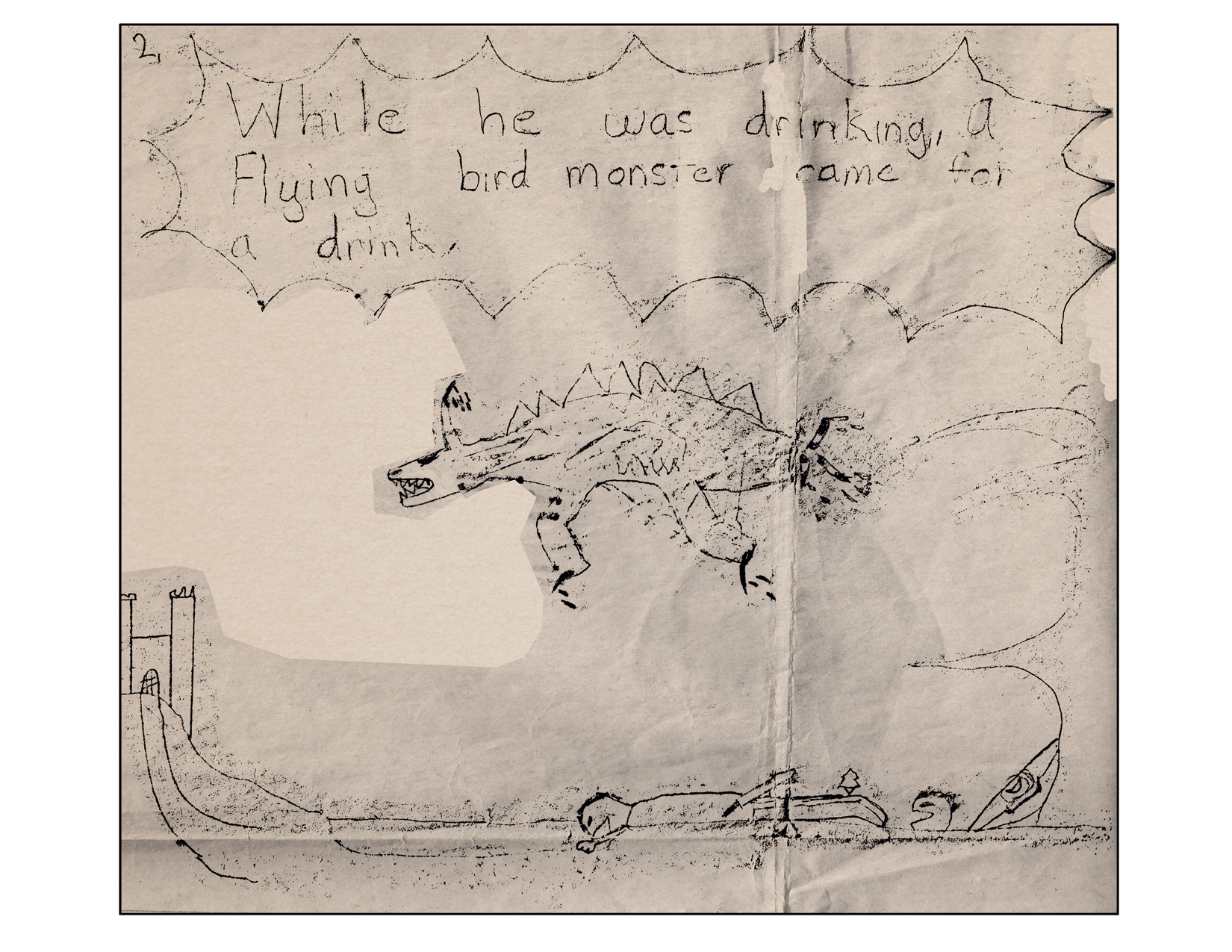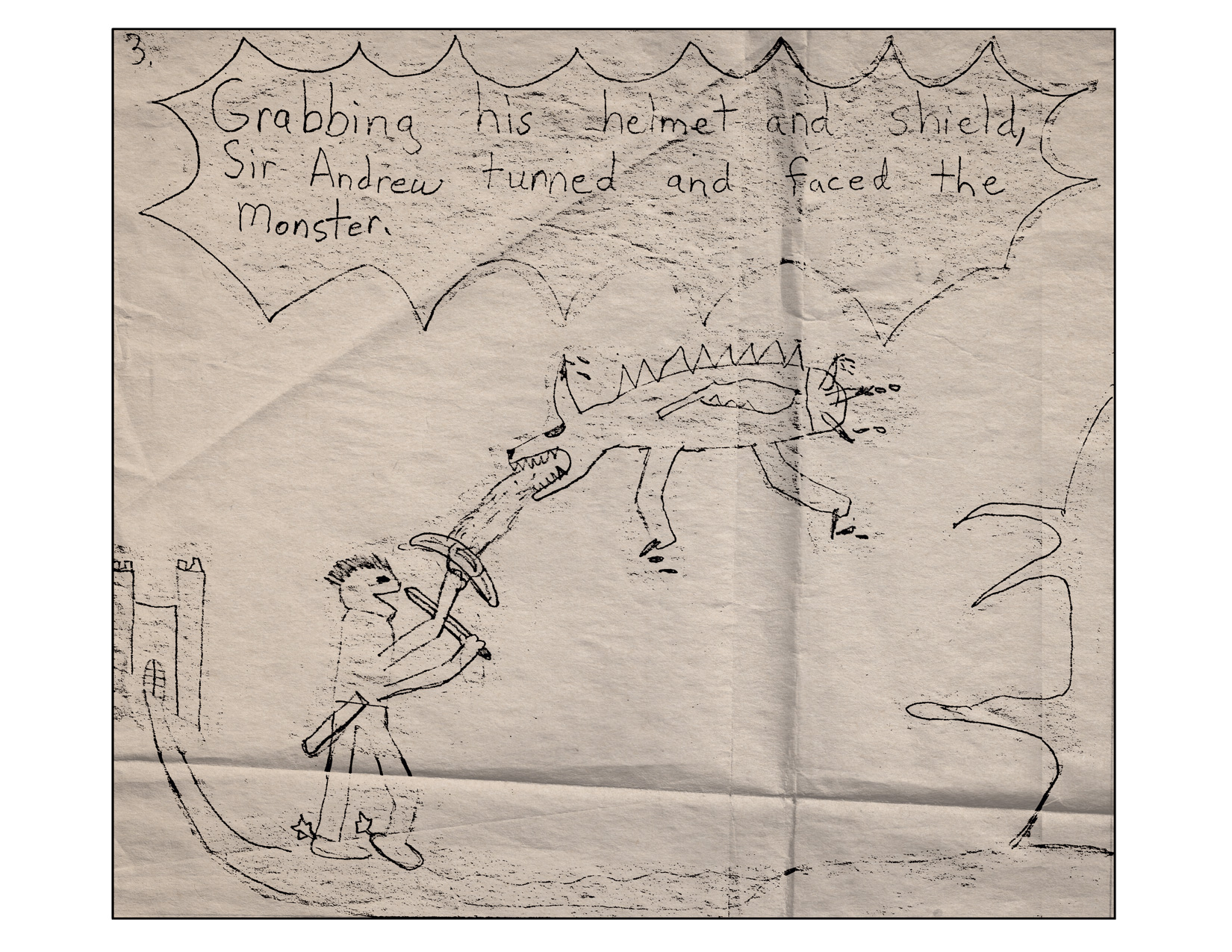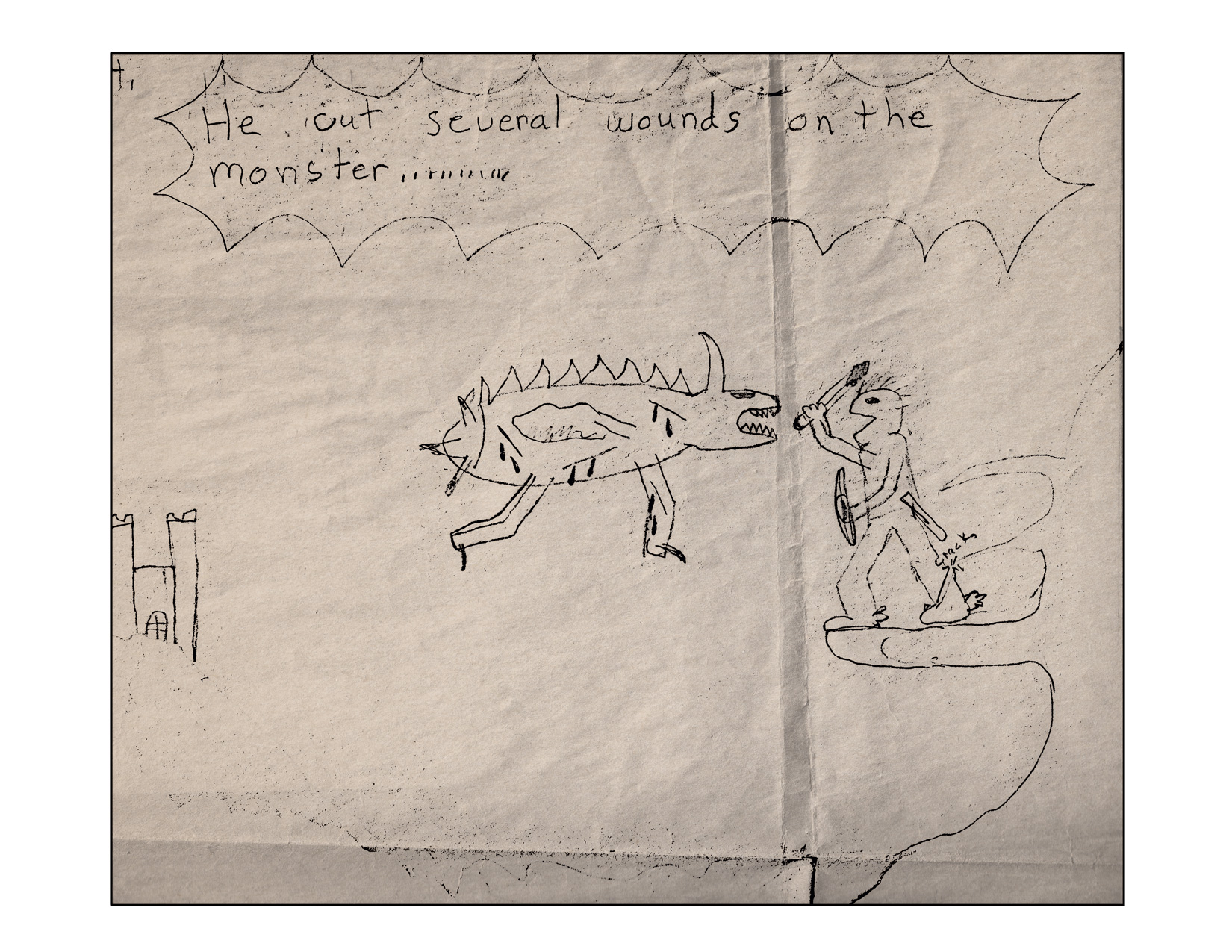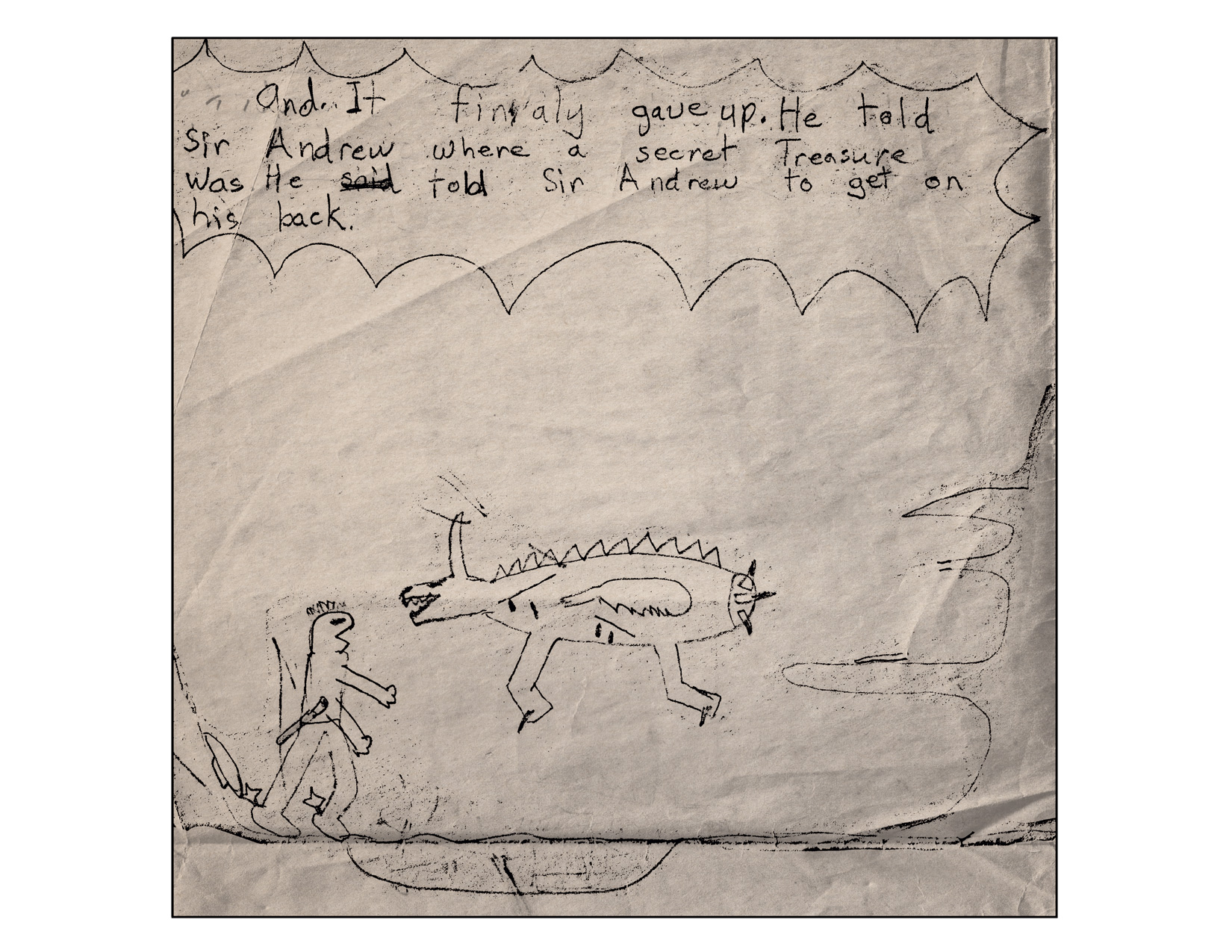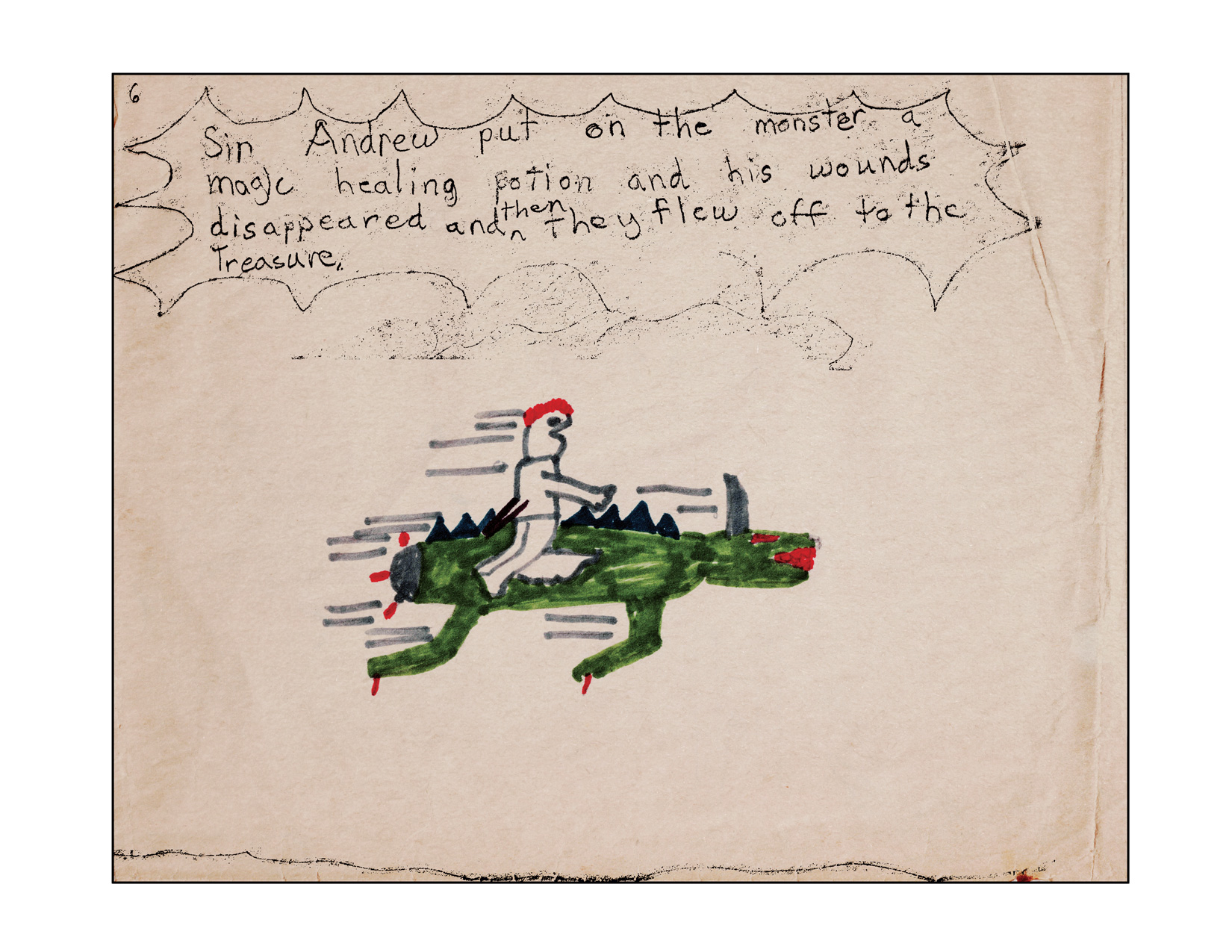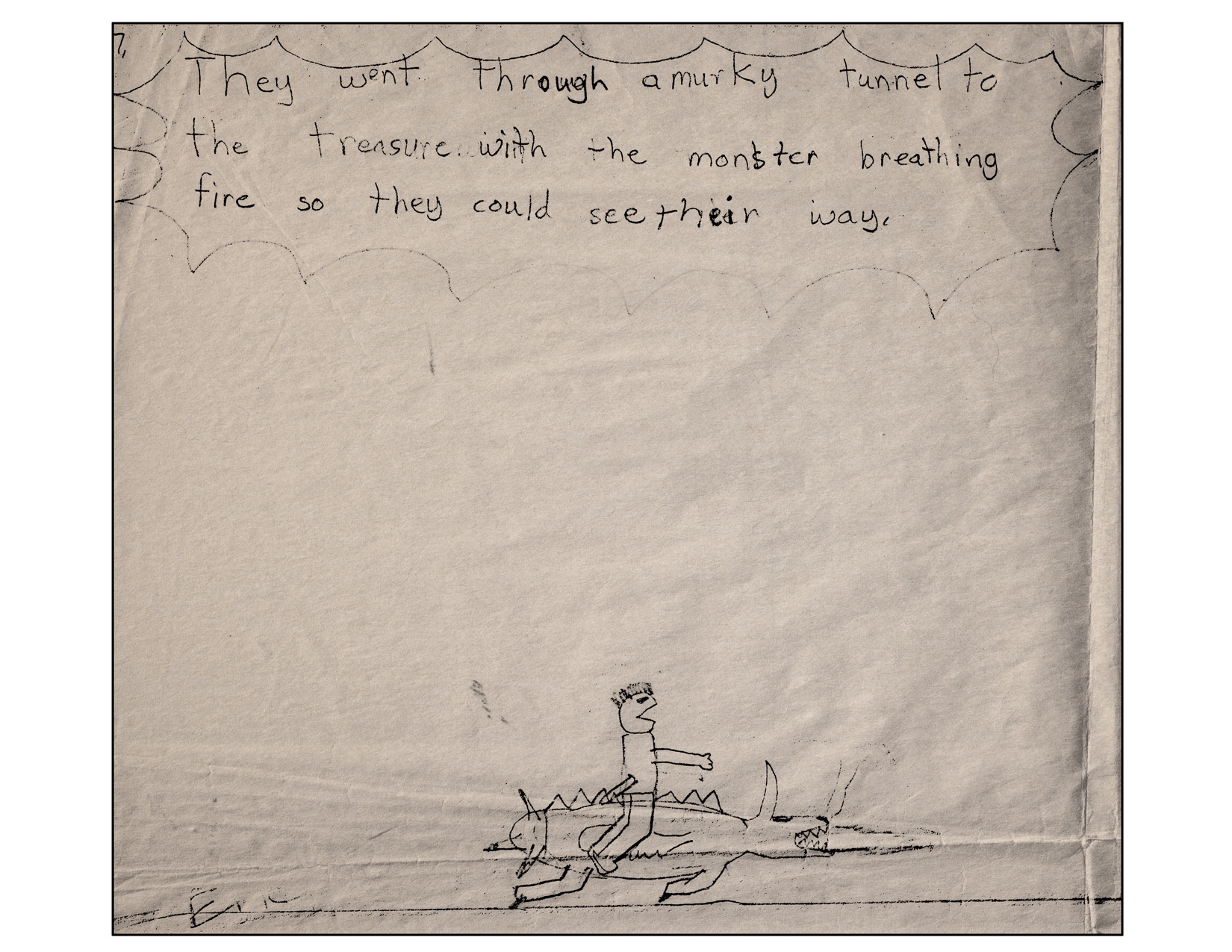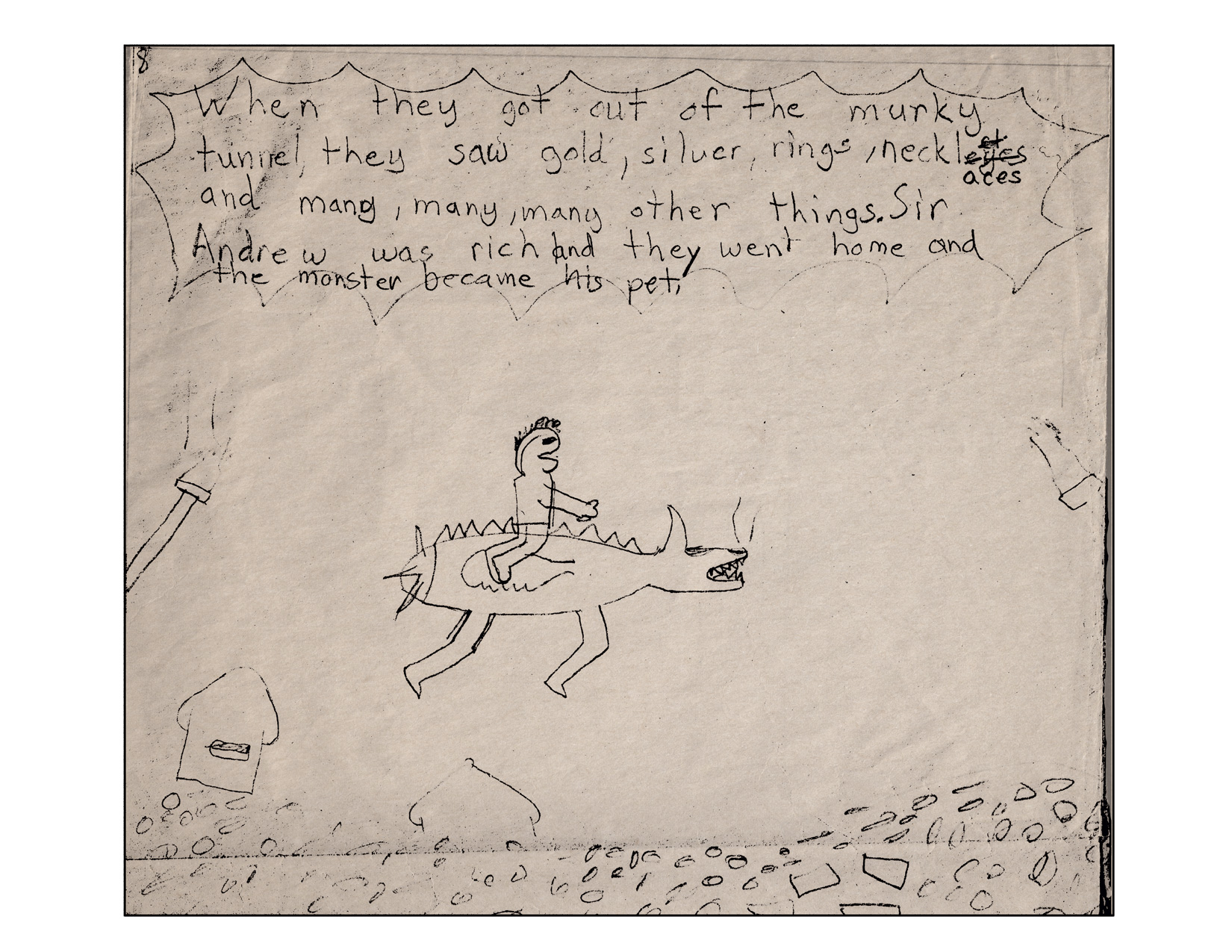Sir Andrew and the Flying Bird Monster
This is a little bit different than art I’ve posted before, so I’ll just take a minute to explain it. This is a short story, but a short story I wrote and drew when I was about 9 years old. Now, as I’ve told many an interviewer over the years, I didn’t draw much as a kid. I simply didn’t. But! Like pretty much all kids, I did draw and the story below is a great example of it.
It’s also a bit of a lucky story. Why? Well, I grew up pretty poor and all kinds of things were lost when my mom died when I was twenty years old. All kinds of school books, toys, and whatnot were unceremoniously discarded just after that. I kept what I could, but I had very little space and very little money. That meant that hard decisions had to be made. This little story was something I wanted to keep and I did so, but I can’t really tell you why. I just did.
Now, this story, in its original form, is badly deteriorating. These were drawn and lettered in pencil (for the most part — see below) on what I think is tracing paper. I might be cheap newsprint, though it’s hard to tell. Overall, the paper measures 24 inches by 18 inches. It’s been folded repeatedly, probably right back to when I first carried it to school, and is tattered in places. It also a few weird holes in it; these almost look like burn marks, but I probably spilled something on it and the paper deteriorated in those spots.
I also drew the story on both sides. That’s important, because it means that scanning it is tricky; there’s bleed-through from the other side of the paper that “leaks” into what I’m actually trying to scan. On top of it, at some point I went in and coloured one panel, number 6, with markers. That created all kinds of additional problems, but the main one is that these colours bled right through the paper into panel 2 and even a part of panel 1 on the other side. I simply could not get an accurate scan, which really affected the monster’s head in panel 2. I wound up having to do a bit of creative work, copying part of the head from another panel and digitally pasting it into panel 2.
Since
this paper has travelled with me for many decades now, it’s
somewhat remarkable that it’s survived at all, even given all
of the above caveats. But I was getting worried that eventually the
pencils might just disappear, so I finally decided to do
the best scans I could given the condition of the paper I had to work
with. Scanning was one helluva challenge; I used every trick I could,
but I kept coming up against the same main issue: to make the pencils
dark enough to see (and read!), too many “artifacts” were
coming through. These are folds, tears, rips, smudges, and so on. To
try to present it in a readable form, I basically created multiple
versions of the scans, finally creating a digital approximation of my
original pencils. As a result, the first two panels were very tricky to reconstruct, so apologies for some of the odd shadowing and other artifacts despite my best efforts. Is the whole thing perfect? Nope! Is it about the best
approximation I can do of what the panels look like to the eye? Yup!
So why share this at all? This is kid’s art, right? It absolutely is. I’ve never had a problem showing my rough art and I certainly don’t have a problem with showing my “kid art.” I also like the spirit of this little story. While I wasn’t playing Dungeons & Dragons at this point, I do remember that my mom had scrounged up some cash and had purchased for me a copy of THE OFFICIAL ADVANCED DUNGEONS AND DRAGONS COLORING ALBUM (illustrated by Greg Irons and written by Gary Gygax, published by Troubador Press in 1979) as well as a few of those early FIGHTING FANTASY gamebooks that came out beginning in 1982. I can see these books as little influences, mixed in with my own sensibilities, something that hasn’t changed all that much to this day.
I
also thought my “kid
art” was a good example
of something Betty Edwards mentioned in her legendary book DRAWING ON
THE RIGHT SIDE OF THE BRAIN (pages
62 and 63 of my copy). Namely:
“The majority of adults in the Western World do not progress in art skills much beyond the level of development they reached at age nine or ten. In most mental and physical activities, individuals’ skills change and develop as they grow to adulthood: speech is one example, handwriting another. The development of drawing skills, however, seems to halt unaccountably at an early age for most people. In our culture, children, of course, draw like children, but most adults also draw like children no matter what level they may have achieved in other areas of life…
… If we were to attach a label to this disability in the way that educators have attached the label dyslexia to reading problems, we might call the problem dyspictoria or dysartistica or some such term. But no one has done so because drawing is not a vital skill for survival in our culture, whereas speech and reading are. Therefore, hardly anyone seems to notice that many adults draw childlike drawings and many children give up drawing at age nine or ten. These children grow up to become the adults who say that they never could draw and can’t even draw a straight line. The same adults, however, if questioned, often say that they would have liked to learn to draw well, just for their own satisfaction at solving the drawing problems that plagued them as children. But they feel that they had to stop drawing because they simply couldn’t learn how to draw.”
That, to be clear, was me. I had very little confidence as a kid. Very little self-esteem. And while I can’t remember a specific incident that made me stop drawing, I do remember being frustrated that my drawings weren’t turning out the way I wanted them to. It was immensely discouraging, especially because I loved comics but I couldn’t make my art “look like that.” So I gave it all up and stopped drawing completely. And it would take me over 15 years to find my way back to drawing, speed bumps and all. In a sense, I kinda look at these panels as a bit of a poignant “what if.” But I also look at them with a sense of astonishment: never say never! The 9 year old me would be astounded by what I (he?) can do now. I doubt that “he” would even believe it!
In a sense, that’s one of the wonders of art. It’s never too late for anyone to draw, to write, play music, or whatever. Even if you think you can’t, it’s never too late to try. Never too late to learn new things. Is it hard? Yup, it absolutely is. I’m not gonna lie about that. But it’s also incredibly rewarding and I’ll always be indebted to Betty Edwards for helping me see that.

